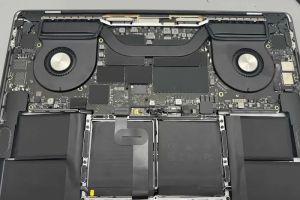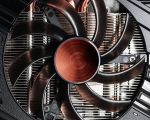What Do Computer Repair Technicians Do? Understanding Their Role and Services
- What is a Computer Repair Technician?
- Key Responsibilities of Computer Repair Technicians
- How Computer Repair Technicians Diagnose Issues
- Skills Required to Be a Computer Repair Technician
- Real-Life Experiences and Stories from the Field
- When to Hire a Computer Repair Technician
1. What is a Computer Repair Technician?
In today’s digital world, computers are integral to almost every aspect of our lives. Whether you're working, shopping, or simply staying connected with family and friends, you rely on your computer to function properly. However, like any complex piece of machinery, computers can experience technical difficulties that may require professional help. This is where computer repair technicians come in.
A computer repair technician is a skilled professional who diagnoses, repairs, and maintains computers and computer systems. They work with both hardware and software, identifying issues ranging from system crashes to broken hardware, and providing solutions to get your computer up and running smoothly again. I’ve had my fair share of experiences with computer repair technicians, from fixing a crashed laptop to upgrading an old desktop, and their expertise is invaluable when things go wrong.

Action Computers Inc. -- Denver Location
2890 S Colorado Blvd F, Denver, CO 80222, USA
2. Key Responsibilities of Computer Repair Technicians
Computer repair technicians perform a wide range of tasks depending on the issue at hand. Some of their main responsibilities include:
- Diagnosing and Troubleshooting: When I’ve brought my computer in for repairs, the technician’s first step was always to diagnose the problem. They run diagnostic tests to identify whether the issue is hardware or software-related. Whether it's a slow computer or a hardware malfunction, technicians use specialized tools to analyze and pinpoint the issue.
- Repairing or Replacing Faulty Components: One time, my laptop's hard drive failed, and the technician replaced it with a new one. In such cases, the technician disassembles the computer, identifies damaged parts like the motherboard or hard drive, and either repairs or replaces them with functional components.
- Upgrading Software and Hardware: Another common service I’ve utilized is upgrading my computer’s memory or storage. Technicians can install additional RAM, replace outdated graphics cards, or update your computer’s software to improve performance.
- Data Recovery: There was a time when my computer's operating system crashed, and I thought I had lost all my important files. However, a computer repair technician was able to recover my data, including family photos and business documents, saving me from a potentially disastrous situation.
3. How Computer Repair Technicians Diagnose Issues
Computer repair technicians are experts at diagnosing and pinpointing problems, but how exactly do they do it? Based on my experiences, I can tell you that it’s a combination of thorough testing, observation, and advanced diagnostic tools.
When I took my computer to a technician with a slow performance issue, the first thing they did was run a diagnostic test to check for software problems or resource-heavy processes that might be slowing down the machine. If the problem was hardware-related, the technician would often take the device apart to physically inspect the internal components for signs of damage or wear and tear. I’ve also seen them use special software to analyze the system's health, checking for viruses or hardware failures.
Overall, the process is quite methodical. By combining knowledge of computer systems with their problem-solving skills, technicians can usually find the root cause of a problem fairly quickly, even if the symptoms are hard to explain.

Fix It Computer Repair
2638 Geranium Ln, Fort Collins, CO 80525, USA
4. Skills Required to Be a Computer Repair Technician
To be an effective computer repair technician, a variety of technical and problem-solving skills are necessary. Over the years, I’ve come to appreciate the technical knowledge and personal qualities that make a good technician stand out:
- Technical Knowledge: A solid understanding of computer hardware, operating systems, and networking protocols is essential. Technicians must stay up-to-date with the latest technological advancements and troubleshoot problems effectively.
- Problem-Solving Skills: When my computer had an obscure issue, the technician showed impressive problem-solving abilities by testing various fixes until the issue was resolved. They must be able to think critically and logically to identify problems and find solutions quickly.
- Attention to Detail: Working with small, intricate parts requires technicians to be detail-oriented. A good technician knows that the smallest mistake could affect the entire repair process.
- Customer Service: As I’ve often found, good communication skills are key. Technicians must explain complicated issues in simple terms to ensure that customers understand the problem and the solution.
5. Real-Life Experiences and Stories from the Field
Throughout my time using computer repair services, I’ve encountered many interesting and memorable experiences. One story that stands out is when my computer suddenly shut down, and I couldn’t figure out why. I took it to a technician, and within a few minutes, they discovered that a recent software update had caused a conflict with my operating system, leading to the crash. Thanks to their expertise, I was able to avoid a complete system wipe, saving both time and money.
In another instance, my desktop computer was running incredibly slow despite having plenty of memory. The technician traced the issue to an old hard drive and recommended an SSD upgrade. After the upgrade, my computer ran as fast as when it was new, and the technician’s recommendation saved me from having to buy a whole new computer.
6. When to Hire a Computer Repair Technician
Knowing when to call in a professional is important. From my own experience, here are some signs that it’s time to seek out a computer repair technician:
- Frequent Crashes: If your computer crashes or freezes regularly, it’s time to have it looked at by a professional. These issues are often related to hardware failure, corrupted software, or malware.
- Slow Performance: If your computer is running much slower than it used to, despite clearing out unnecessary files and updates, a technician can help diagnose and resolve the issue.
- Data Loss: Losing important files or data can be devastating. If you find yourself in this situation, a computer repair technician with data recovery expertise can retrieve your lost information.
- Viruses or Malware: If you suspect your computer has been infected with a virus or malware, a technician can run a scan and remove the malicious software, preventing further damage.
If you're in need of a trusted professional to repair your computer, don’t hesitate to reach out to a reliable service provider like Computer Repair, who can assess your computer’s issues and offer the best solutions to get you back up and running in no time!




























